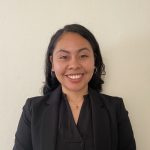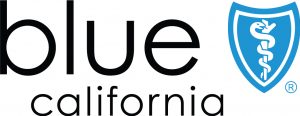In December, the Coro Fellows in Public Affairs participated in an intensive Healthcare Focus Week in order to learn about vital issues related to the sector. Topics included an overview of healthcare policy at the national level, social determinants of health, and insurance and financing. The Fellows also interviewed a range of experts from across the sector.
Asked to summarize what they learned, the Fellows chose an interview format. This thoughtful conversation between two current Coro Fellows — Angela Castellanos, posing the questions, and Donovan Gayles, offering his responses — illuminates takeaways from the week and continued questions to consider moving forward.


Angela: What was your understanding of the healthcare system before Healthcare Focus Week?
Donovan: My understanding was that there are many barriers to entry and that the healthcare system is inaccessible to many low-income people, people of color, and people with disabilities, among others. I understood that private insurers monopolized the market. However, I still had optimism that a solution exists that would benefit all people in terms of affordability, accessibility, and awareness.
What surprised you about what you learned during healthcare week?
There is an incentive in keeping patients sick because of the dollar amount that comes with that. And there may not be a solution that actually is able to benefit everyone, whether it is the physician providing the care taking pay cuts, for example, or the patient receiving the care or lack thereof. With any solution, there are tradeoffs.
After speaking with all these folks, what do you think the priority should be?
One priority should be preventative measures, and we should take into account sustainability and community development to keep people from getting sick in the first place, such as addressing food deserts, pollution, etc. Creating healthier environments will lead to better health outcomes.
What do you think is necessary to incentivize players in the healthcare system to move toward preventive measures?
Some incentives could be subsidies and healthy competition to lower costs, or research grants to healthcare companies. In terms of healthy competition, companies should not monopolize the market and increase prices because there is low competition.
What stakeholders need to be involved?
Definitely public officials, healthcare providers, hospital managers, and the communities to whom they deliver services. They should all be brought to the table when making important decisions.
What proposal to fix our healthcare system did you find most interesting?
The Singapore health model, or a single buyer system that includes capped physician salaries and the federal government provides a 3% bonus to hospitals each year to cover the cost of care. Also, taxes are matched to the type of healthcare; for example, if someone buys a motorcycle they would pay a special tax that goes to the funding of emergency services.
Do you think any of these models could be applicable to the United States?
I want to be optimistic but at the same time, I am unsure. I think the way we are headed is the single-payer healthcare system. I think because there is so much money in the healthcare market, there would be so much pushback otherwise. Single-payer has been a decades-long discussion and debate as an alternative provision model.
What are your thoughts on single-payer given that historically, there are challenges with efficient government service?
I do not have enthusiasm for government provision because it is concerning to give the government another platform they have more control over. In my opinion, the government has lost credibility in being able to effectively approach high profile, relatively partisan situations that benefit large volumes of people (for example, stimulus relief checks for struggling Americans). I am also concerned with the type of care distributed. Just because we have a single-payer, will everyone have access to adequate healthcare and equitable health outcomes?
What should the general public know about our healthcare system?
Poverty plays a critical role in healthcare, and so do your elected officials in the kind of care that is available. It is super important to vote and be involved as much as you can in deciding who will be making these decisions. Our healthcare is decided by who has the power to make these decisions.
For example, the Biden Administration wants to introduce a government option that will need to be ratified by the House and Senate. If we were to elect officials who were against universal healthcare, then there is a possibility that there would be a repeat of 2008, where former President Barack Obama tried to pass the Affordable Care Act and was met with a stonewall for years. There is value in electing representation that can be held accountable for the promises they make during their campaign cycle, and getting to the polls is one way to show people that we are paying attention to what is said and done behind closed doors.
What would be the best way to communicate this information?
Grassroots movement-building, like through community organizers and organizations that live within the most affected communities and have the most information about what their communities need.
If you were, hypothetically, an elected official, what would you do to change the healthcare system?
I would address the level of asymmetrical information. There is a lack of transparency between the patient, provider, and the insurer in terms of what is covered, what is not covered, and why services cost a certain amount. I am worried that a patient who needs to go to the ER may decide not to go because they may be unable to afford care. An analogy I think of is going to the car dealership. You don’t want to go and buy a car without any prior knowledge of cars or without anyone who knows cars well, or you may risk being on the short end of the deal, charged more while receiving less. The same can be said for healthcare. We need to have less asymmetric information between healthcare providers, healthcare insurers, and patients.
What questions were left unanswered for you? What questions do you still have after this week?
A big question I still have is: Is there a model that will help all people, or do we need to settle for a model that will help the most people possible? I would like to see everyone have care, regardless of class, race, etc. What sacrifices must be made in order to make that happen?
Thank you to our Focus Week Interview Guests for sharing their time and expertise:
Anthony E. Wright, Executive Director, Health Access.
Dr. Anthony Iton, Senior Vice President for Healthy Communities, The California Endowment.
Antoinette Mayer, Senior Director of Corporate Citizen & Reputation, Blue Shield of California.
Dionne Miller, Chief Operating Officer, Kaiser Permanente San Francisco.
Erica Murray, President and CEO, California Association of Public Hospitals.
Greg Garrett, Chief Operating Officer, Native American Health Center.
Dr. Kim F. Rhoads, Director, Office of Community Engagement, Helen Diller Family Comprehensive Cancer Center.
Dr. Naveena Bobba, Deputy Director of Health, San Francisco Department of Public Health.
Peter Long, Senior Vice President of Health Care and Community Transformation, Blue Shield of California.
Shannon McConville, Senior Research Associate, Public Policy Institute of California.
Sean Flynn, Associate Professor of Economics, Scripps College.
Veenu Aulakh, President & CEO, Center for Care Innovations.
Angela Castellanos is a 2021 Coro Fellow in Public Affairs currently residing in Berkeley, CA. Angela graduated from UC Berkeley in 2016 with majors in Political Economy and Latin American Literature. After graduation, Angela worked in the nonprofit sector. Angela joined Coro to gain cross sectoral experience and further develop her leadership skills. After Coro, she hopes to engage in efforts at the local and state level to accelerate positive change for immigrants and limited English proficient Californians.
Donovan Gayles is a 2021 Coro Fellow in Public Affairs currently residing in New Jersey. Donovan graduated from Susquehanna University with a Bachelor of Arts in Political Science and Public Policy. Donovan joined Coro to gain experience in ethical leadership with consideration of the interdisciplinary focus of the Coro curriculum and public service. Donovan plans to use his experience with Coro to dismantle the systems of oppression that plague our society.
Coro thanks our generous Healthcare Focus Week Sponsors

